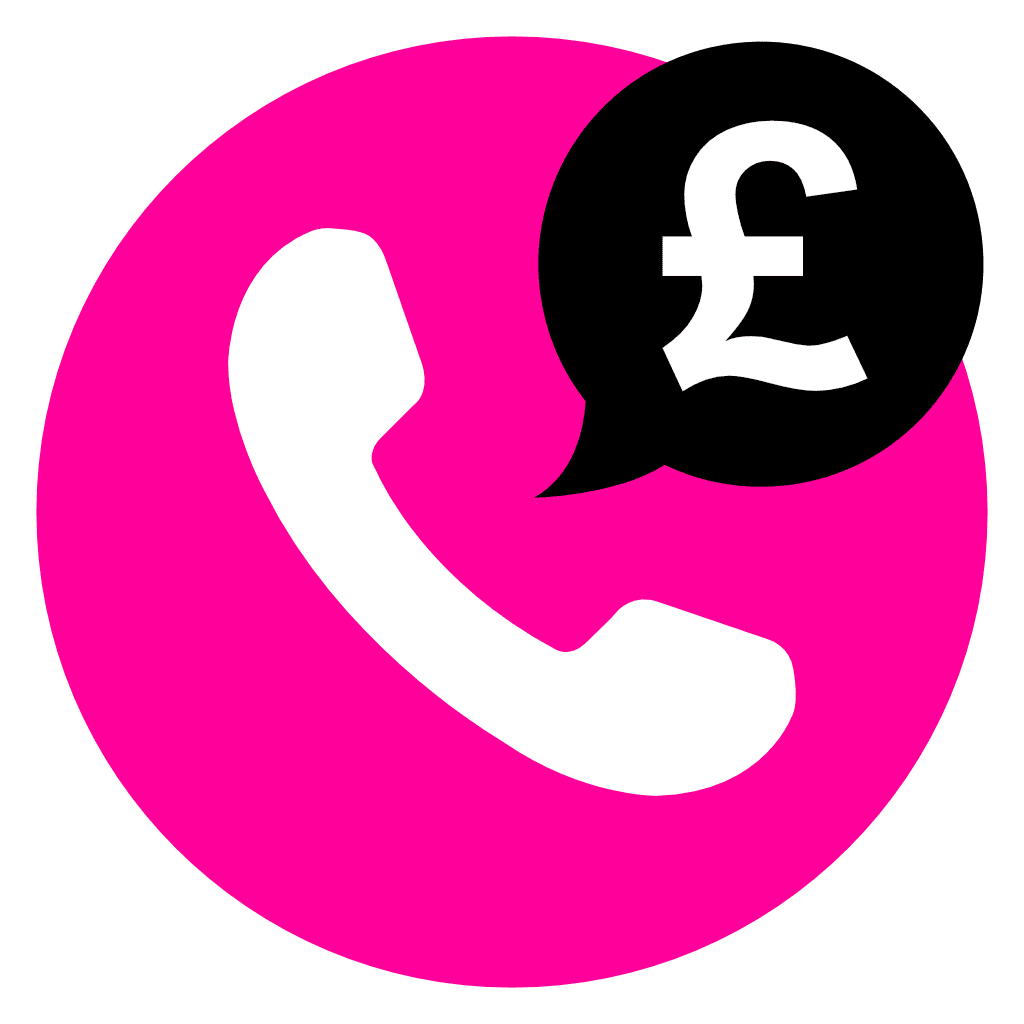Two well-regarded solutions in the business commnications market are Dialpad and Nextiva. Both offer robust communication tools, including VoIP, video conferencing, and messaging, but they cater to slightly different needs. In this detailed comparison, we’ll explore Dialpad vs Nextiva for features and costs, helping you make an informed decision based on your business’s specific requirements.
Overview of Dialpad vs Nextiva
Dialpad is a modern, AI-driven communications platform that excels in integrating voice, messaging, and video calls. With a focus on AI-based productivity tools, it’s especially popular with businesses that rely on team collaboration and customer service automation.
Nextiva, on the other hand, is a versatile business communication platform known for its reliability and extensive customer support options. It’s a strong contender for businesses seeking an all-in-one communications and CRM solution, offering a wider range of integration options.
| Feature | Dialpad | Nextiva |
|---|---|---|
| VoIP and call management | Advanced call routing, voicemail transcription, AI-driven features like live call transcription | Comprehensive call management tools, including call queuing, auto-attendants, and the Nextiva App |
| Video conferencing | Dialpad Meetings (formerly UberConference), seamless integration, high-quality video calls | Basic video conferencing, functional but not as robust as Dialpad’s solution |
| AI and productivity tools | AI-powered tools for live transcription, sentiment analysis, and real-time call tracking | No AI-driven features, but offers automation within its CRM and communications suite |
| CRM integration | Integrates with major CRMs like Salesforce, HubSpot, Zoho | Built-in CRM, offering native integration and seamless customer management without third-party software |
| Collaboration tools | Integrates with Google Workspace and Microsoft 365 for messaging and document sharing | Team collaboration tools including shared tasks, calendars, and document sharing |
| Pricing (Standard/Essential) | £12 per user, per month – Unlimited UK/US calling, SMS, Google and Microsoft integration | £15 per user, per month – Unlimited voice/video calls, SMS, basic integrations |
| Pricing (Pro/Professional) | £20 per user, per month – Global SMS, more integrations, AI-powered analytics | £20 per user, per month – Advanced call management, CRM integration, video conferencing for up to 250 participants |
| Pricing (Enterprise) | Custom pricing – Tailored AI tools, advanced analytics | £25 per user, per month – Unlimited participants in video meetings, deep CRM functionality, custom integrations |
| Customer support | 24/7 phone support (Pro and Enterprise plans), slower response times reported in reviews | 24/7 support for all plans, fast and reliable assistance, 99.999% uptime guarantee |
| Uptime and reliability | 99.99% uptime, mostly reliable but not as highly rated as Nextiva | 99.999% uptime, known for exceptional reliability and service |
| Best suited for | Businesses needing AI-driven tools, advanced video conferencing, and real-time productivity enhancements | Businesses needing an all-in-one communications and CRM solution, with strong collaboration and workflow management tools |
Feature comparison
1. VoIP and call management
- Dialpad: Provides advanced VoIP features such as call forwarding, customisable call routing, and voicemail transcription. The AI-powered features also offer live transcription of calls, making it easier for teams to track conversations.
- Nextiva: Offers a wide range of VoIP features, including call queuing, auto-attendants, and conference calls. Its standout feature is the Nextiva App, which integrates voice, video, chat, and email in one platform, streamlining communications.
Winner: Nextiva takes the edge in this category due to its comprehensive call management tools and the all-in-one Nextiva App. However, Dialpad’s AI features are superior for businesses looking for more automated options.
2. Video conferencing
- Dialpad: Provides high-quality video conferencing with screen sharing and collaborative tools. Dialpad Meetings (formerly UberConference) integrates seamlessly with their voice solution, allowing for a smooth user experience without needing additional software.
- Nextiva: Offers basic video conferencing features, but it is not as specialised in video calls as Dialpad. It’s functional, but for more intensive video conferencing needs, Dialpad’s solution is more robust.
Winner: Dialpad stands out here for its stronger video conferencing capabilities, making it a better choice for businesses that require frequent virtual meetings.
3. AI and productivity tools
- Dialpad: AI-driven tools are a key feature, offering real-time call transcription, voice analysis, and sentiment tracking. These features can greatly enhance customer support by providing insights during live calls.
- Nextiva: While Nextiva doesn’t boast the same AI capabilities as Dialpad, it does offer a powerful CRM and automation tools within its communications suite, which help streamline workflow and client management.
Winner: Dialpad excels with its AI capabilities, making it ideal for businesses focused on improving real-time communications and productivity through artificial intelligence.
4. CRM integration
- Dialpad: Integrates with major CRM platforms such as Salesforce, HubSpot, and Zoho, but the integration is more focused on call tracking and data syncing.
- Nextiva: Provides a built-in CRM as part of its offering, which is a major advantage for businesses looking to combine their communications and customer management systems. This allows for seamless customer interactions, data collection, and workflow management without the need for third-party integrations.
Winner: Nextiva wins in this category due to its native CRM functionality, reducing the complexity of external integrations and enhancing customer management capabilities.
5. Collaboration tools
- Dialpad: Integrates well with other platforms like Google Workspace and Microsoft 365, enabling document sharing, messaging, and video calls. However, the focus remains on communications rather than collaboration in a project management sense.
- Nextiva: Offers team collaboration tools, including shared documents, tasks, and calendar management, alongside its communications suite. This makes it a stronger option for businesses looking for more comprehensive collaboration features.
Winner: Nextiva is the stronger choice for businesses that need communication tools deeply integrated with collaboration features.
Dialpad vs Nextiva cost comparison
Dialpad Pricing
- Standard plan: £12 per user, per month – includes unlimited calling within the UK and US, SMS, and integrations with Google and Microsoft.
- Pro plan: £20 per user, per month – adds global SMS, more integrations (including CRM tools), and additional AI-powered analytics.
- Enterprise plan: Custom pricing – tailored for larger organisations with advanced needs, including custom AI tools and detailed analytics.
Nextiva Pricing
- Essential plan: £15 per user, per month – includes unlimited voice and video calling, SMS, and basic integrations.
- Professional plan: £20 per user, per month – offers advanced call management features, CRM integration, and video conferencing for up to 250 participants.
- Enterprise plan: £25 per user, per month – adds unlimited participants in video meetings, deeper CRM functionalities, and custom integrations.
Customer support and reliability
- Dialpad: Offers 24/7 phone support for Pro and Enterprise plans, with extensive online resources for troubleshooting. However, customer reviews suggest that live support can sometimes be slow.
- Nextiva: Known for its excellent customer service, Nextiva offers 24/7 support across all plans and has a reputation for fast, reliable assistance. It also offers a 99.999% uptime guarantee, ensuring reliability for businesses.
Winner: Nextiva has the advantage here, with consistently high marks for its customer support and service reliability.
Which platform should you choose?
Choose Dialpad if:
- Your business relies heavily on AI and real-time call analysis.
- You need top-tier video conferencing capabilities.
- You’re looking for a more tech-driven platform with advanced features like sentiment tracking and live transcriptions.
Choose Nextiva if:
- Your business needs an all-in-one solution that combines communication with CRM functionality.
- Collaboration and workflow management are essential to your operations.
- You value high reliability and fast, comprehensive customer support.
Conclusion – Dialpad vs Nextiva
Both Dialpad and Nextiva are excellent choices for business communications, but they serve slightly different needs. Dialpad is perfect for businesses that prioritise AI-powered tools and seamless video conferencing, while Nextiva shines as a comprehensive, reliable solution with built-in CRM and collaboration features. Ultimately, the best option depends on your business’s specific requirements and budget.
When considering costs, Dialpad is slightly more affordable at the entry level, but Nextiva offers more value if you need an integrated CRM and enhanced collaboration tools. Balancing your need for automation, collaboration, and customer management will help guide your decision.
FAQ
Dialpad excels in AI-driven tools with live call transcription, sentiment analysis, and real-time call insights. Nextiva does not offer AI-based features but provides strong CRM automation and workflow management, making it better suited for businesses needing integrated customer management solutions.
Dialpad offers superior video conferencing with its integrated Dialpad Meetings platform, providing a seamless experience with screen sharing and collaborative tools. Nextiva’s video conferencing is functional but not as robust, making Dialpad the better option for businesses that rely heavily on virtual meetings.
Dialpad integrates with major CRM platforms like Salesforce, HubSpot, and Zoho, but Nextiva goes a step further by offering a built-in CRM, allowing seamless customer management without the need for external software, making Nextiva better for businesses wanting an all-in-one solution.
Dialpad’s entry-level plan starts at £12 per user per month, making it more affordable than Nextiva’s starting price of £15. However, Nextiva offers more comprehensive tools at higher tiers, including CRM functionality, which could provide better value depending on your business needs.
Nextiva offers more robust collaboration tools, including shared tasks, calendars, and document management, making it ideal for teams that need integrated workflow management. Dialpad focuses more on communication and integrates with Google Workspace and Microsoft 365 but lacks deeper collaboration features.
Nextiva is known for its excellent customer service, offering 24/7 support across all plans with quick response times. Dialpad also provides 24/7 support on higher-tier plans, but some customers have reported slower response times, making Nextiva the better option for support reliability.
Dialpad supports global SMS and international calling, making it a good option for businesses with a global presence. Nextiva also offers international calling, but its focus is more on domestic communications and CRM, making Dialpad the better choice for international operations.
Both platforms offer robust VoIP services. Dialpad includes advanced AI-powered features like voicemail transcription and custom call routing, while Nextiva excels in call management with auto-attendants, call queuing, and conferencing tools. Nextiva’s broader call management options make it stronger for larger teams.
Both platforms offer reliable mobile apps, but Dialpad’s mobile app is more streamlined for communications, allowing calls, messaging, and video conferencing in one place. Nextiva’s app integrates voice, video, and CRM functions, making it more suitable for businesses that require integrated customer management on the go.
Nextiva is built with scalability in mind, offering integrated communication and CRM tools that grow with your business. Dialpad is also scalable, particularly for teams relying on AI and productivity tools, but Nextiva’s all-in-one approach makes it the stronger choice for larger organisations.

